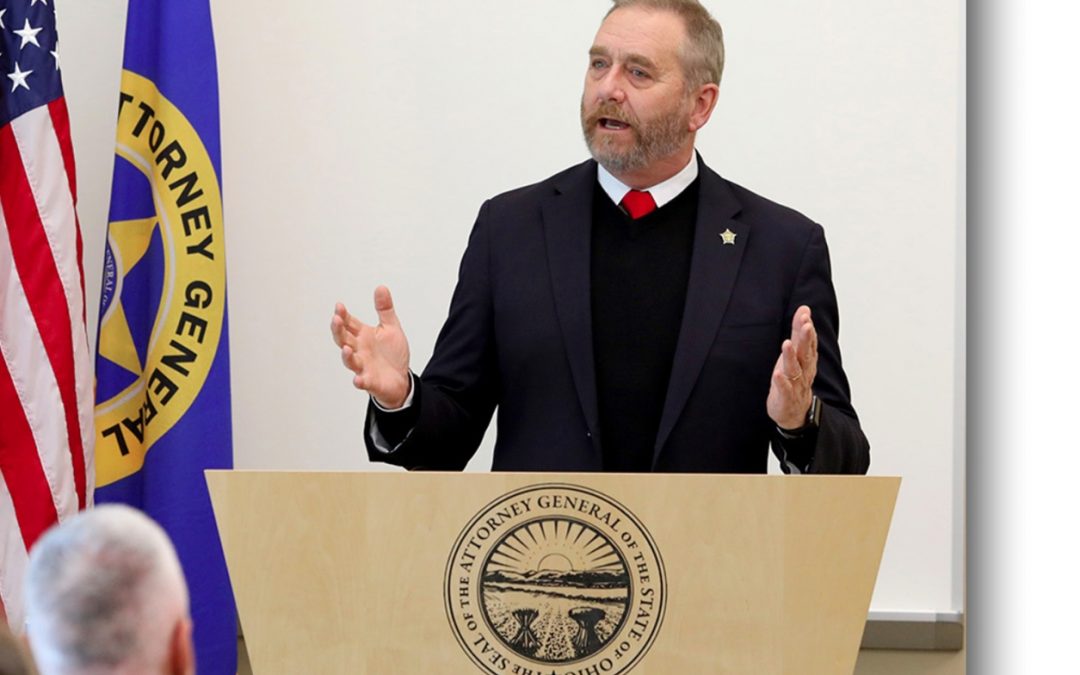
by Wayne Ohio | Dec 8, 2021 | Blog
COLUMBUS, OH, Dec. 8, 2021 — The attorneys general of seven states — including Ohio’s Dave Yost — and the Federal Trade Commission (FTC) have reached a historic settlement that shuts down an illegal scheme orchestrated by Martin Shkreli, founding CEO of Vyera Pharmaceuticals, that fleeced patients who were using the lifesaving drug Daraprim.
“These ‘Pharma Bros’ thought they could raise the price 4,000% overnight and get away with it,” Yost said. “They got a dose of justice, and there’s more where that came from.”
A complaint filed in 2020 by the attorneys general and FTC alleges that Shkreli and Kevin Mulleady, another former Vyera CEO, violated antitrust laws by establishing the company with a plan to buy Daraprim, raise the price significantly and then block generic competitors from entering the market.
Under the settlement, Vyera and parent company Phoenixus AG will pay up to $40 million in penalties, with $10 million guaranteed and the remaining $30 million paid over 10 years if the company has available funds.
For his part, Mulleady faces an unprecedented seven-year ban from the pharmaceutical industry.
The agreement also essentially creates a marker for what the states and FTC consider behavior that violates antitrust laws.
Daraprim for decades was the only drug approved by the Food and Drug Administration to treat toxoplasmosis, a serious infection caused by a common parasite. The Centers for Disease Control and Prevention, the National Institutes of Health, the HIV Medicine Association, and the Infectious Diseases Society of America all recommended Daraprim as the initial therapy of choice for acute toxoplasmosis.
When the Pharma Bros. bought the drug in 2015, they immediately raised the price from $17.50 to $750 per pill. To preserve the astronomical price and their ill-gotten gains, the two created a paperwork logjam to box out for as long as possible manufacturers of generic competitors.
With the scheme now thwarted, the coalition of attorneys general and the FTC continue to pursue their lawsuit against Shkreli, who is expected to go on trial next week for masterminding the scheme.
Besides the seven-year ban, Mulleady also agreed to limit his shareholdings in any pharmaceutical company to nominal amounts for 10 years.
Daraprim is now unpatented, and a generic version of the drug is available in the United States.
In addition to the FTC and Yost, the coalition consists of the attorneys general of California, Illinois, New York, North Carolina, Pennsylvania, and Virginia.

by Wayne Ohio | Nov 15, 2021 | Blog
COLUMBUS, OH, Nov. 15, 2021 — Ohio Attorney General Dave Yost has filed a lawsuit against the social-media giant Facebook for misleading the public on how it controlled its proprietary algorithm all in an effort to boost its stock and deceive shareholders.
The lawsuit, filed on behalf of the Ohio Public Employees Retirement System (OPERS) and Facebook investors, contends that from April 29 through Oct. 21, 2021, Facebook and its senior executives violated federal securities laws by purposely misleading the public about the negative effects its products have on the health and well-being of children and the steps the company has taken to protect the public.
“Facebook said it was looking out for our children and weeding out online trolls, but in reality was creating misery and divisiveness for profit,” Yost said. “We are not people to Mark Zuckerberg, we are the product and we are being used against each other out of greed.”
Facebook’s scheme was revealed in the Wall Street Journal in September and in internal documents and statements provided in October by a former Facebook employee who blew the whistle on Facebook, underscoring how the company “chooses profit over safety.”
Zuckerberg and other company officials, the lawsuit maintains, knew that they were making false statements regarding the safety, security, and privacy of its platforms. Facebook admitted in those internal documents that “We are not actually doing what we say we do publicly.”
In roughly a month, those revelations caused a devaluation in Facebook’s stock of $54.08 per share, causing OPERS and other Facebook investors to lose more than $100 billion.
Yost’s lawsuit not only seeks to recover that lost value but also demands that Facebook make significant reforms to ensure it does not mislead the public about its internal practices.
The lawsuit isn’t the first action that Yost has taken against Facebook, which also owns Instagram. In May, he and 43 other attorneys general sent a letter to Zuckerberg urging him to halt his plans to introduce an Instagram app for kids.
Although Facebook pulled the plug on the app, the whistleblower’s recent testimony before Congress made clear that Facebook never abandoned its goal to expand its user base by grooming kids to use Facebook’s products in the future.
Through this lawsuit, Yost intends to reinforce that such improper targeting of children by the social media giant will not be tolerated.
Yost plans to ask the court by Dec. 27, 2021 – the deadline for such motions – to appoint OPERS as the lead plaintiff in his Facebook securities fraud action. He welcomes other Facebook investors to join him in holding the company and its executives accountable.
There is an existing lawsuit against Facebook with similar allegations that was filed earlier this year on behalf of a retail investor. That lawsuit defines an incorrect time period in which the harm by Facebook’s actions occurred and obscures the damage suffered by shareholders such as OPERS.
Yost is seeking to correct the period of time when the harmful actions took place and give Ohio a voice to hold Facebook accountable.

by Wayne Ohio | Dec 17, 2020 | Blog
COLUMBUS, OH, Dec. 17, 2020 — Ohio Attorney General Dave Yost today joined a bipartisan coalition of 37 other attorneys general in suing Google LLC for anticompetitive conduct in violation of Section 2 of the Sherman Act.
The states allege that Google illegally maintains its monopoly power over general search engines and related advertising markets through a series of anticompetitive exclusionary contracts and conduct. As a result, Google has deprived consumers of competition that could lead to greater choice, innovation, and better privacy protections. Furthermore, Google has exploited its market position to accumulate and leverage data to the detriment of consumers.
“Exclusion and discrimination are by their nature anti-competitive,” Yost said. “When you add those tactics to Google’s dominance, you’re stepping on the market, not competing in it.”
The states’ complaint is consistent with the lawsuit filed by the U.S. Department of Justice on October 20, which alleged that Google improperly maintains its monopoly power in general search and search advertising through the use of exclusionary agreements.
But the state’s filing asserts additional allegations and describes Google’s monopoly maintenance scheme as a multi-part effort. The lawsuit alleges that Google:
Uses exclusionary agreements and other practices to limit the ability of rival general search engines and potential rivals to reach consumers. This conduct cements Google as the go-to search engine on computers and mobile devices.
Discriminates against specialized search sites – such as those that provide travel, home repair, or entertainment services – by depriving them access to prime real estate on the search results screen because these competing sites threaten Google’s revenue and dominant position.
Disadvantages users of its search-advertising management tool, SA360, by continuously favoring advertising on its own platform and inflating its profits to the detriment of advertisers and consumers, despite its promises to the contrary that it would not favor Google search advertising over that of competing search engines such as Bing.
The attorneys general argue that more competition in the general search engine market would benefit consumers, for example, though improved privacy protections and more targeted results and opportunities for consumers. Competitive general search engines also could offer better quality advertising and lower prices to advertisers.
The attorneys general expand on the U.S. DOJ’s allegation that Google’s anticompetitive conduct continues. As explained in the complaint, the company seeks to deploy the same exclusionary contracting tactics to monopolize the emerging ways consumers access general search engines, such as through their home smart speakers, televisions, or in their cars. In so doing, Google is depriving consumers of competitive choices and blocking innovation.
The states also go further than the U.S. DOJ in explaining how Google’s acquisition and command of vast amounts of data – obtained in increasing part because of consumers’ lack of choice – has fortified Google’s monopoly and created significant barriers for potential competitors and innovators.
The attorneys general ask the court to halt Google’s illegal conduct and restore a competitive marketplace. The states also seek to unwind any advantages that Google gained as a result of its anticompetitive conduct, including divestiture of assets as appropriate. Finally, the court is asked to provide any additional relief it determines appropriate, as well as reasonable fees and costs to the states.
The complaint was filed in the U.S. District Court for the District of Columbia, in conjunction with a Motion to Consolidate seeking to combine the states’ case with the pending U.S. DOJ case.
The attorneys general joining the lawsuit include the states and territories of: Alaska, Arizona, Colorado, Connecticut, Delaware, Hawaii, Idaho, Illinois, Iowa, Kansas, Maine, Maryland, Massachusetts, Minnesota, Nebraska, Nevada, New Hampshire, New Jersey, New Mexico, New York, North Carolina, North Dakota, Oklahoma, Oregon, Pennsylvania, Rhode Island, South Dakota, Tennessee, Vermont, Utah, Virginia, Washington, West Virginia, Wyoming, the District of Columbia, and the territories of Guam and Puerto Rico.


